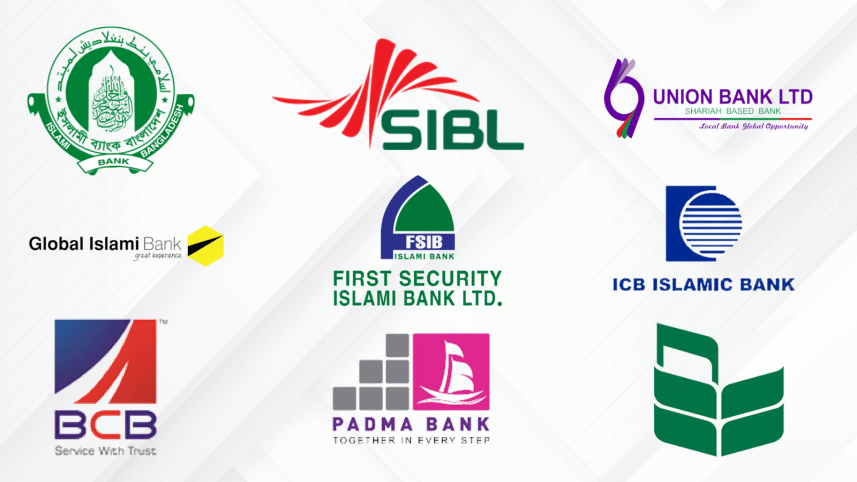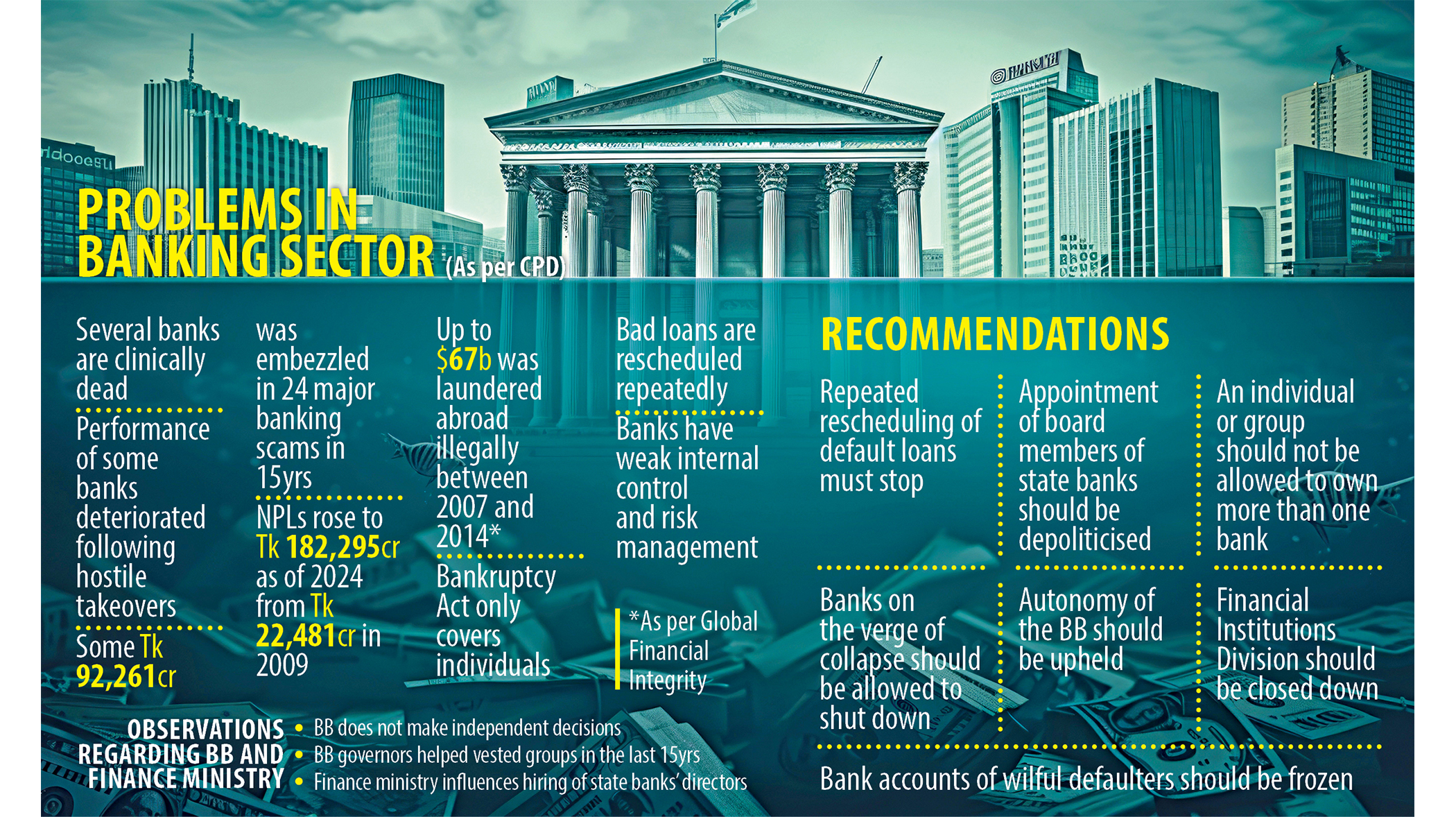BB cuts special liquidity support for nine banks

The Bangladesh Bank reduced the special liquidity support extended to nine lenders, including five Shariah-based banks, despite the absence of a governor.
The banks are National Bank, Padma Bank, ICB Islamic Bank, and six others in which the S Alam Group holds a majority stake: Islami Bank Bangladesh, First Security Islami Bank, Social Islami Bank, Union Bank, Global Islami Bank, and Bangladesh Commerce Bank.
All nine of the banks have long been battling a liquidity crisis.
As such, they have been running operations by utilising the central bank's special liquidity support, BB data showed.
On August 12, the central bank instructed all banks not to honour cheques worth more than Tk 1 crore of the nine banks.
As a result, depositors and borrowers of those banks will not be able to withdraw more than Tk 1 crore from other banks.
However, they can withdraw more than Tk 1 crore from the bank that issued the cheque, said a senior official of the central bank on condition of anonymity.
He said the central bank took the initiative to reduce the burden of special liquidity support.
The banking regulator provides special liquidity support to ailing banks against promissory notes, a legal instrument under which one party promises in writing to pay a sum of money to the other, he pointed out.
Due to the liquidity crunch, a majority of the nine banks have been facing current account shortfalls with the central bank.
Till May 12, seven of the banks, excluding ICB Islami Bank and Padma Bank, were staring at a combined Tk 30,202 crore deficit in their current accounts and CRR (cash reserve ratio) accounts with the central bank, BB data showed.
A central bank official said that since depositors and borrowers of these banks will not be able to withdraw large amounts of money, they will require less liquidity support.
It was learned that the banks were getting special liquidity support from the central bank with the help of Bangladesh Bank governor Abdur Rouf Talukder.
A few months ago, when asked why liquidity support was continually provided to these banks, Talukder told journalists that it was done at the governor's discretion.
Talukder resigned from his post on August 9, four days after the fall of the Sheikh Hasina-led Awami League government in the face of a mass uprising.
Seeking anonymity, managing directors and CEOs of three leading private commercial banks acknowledged the central bank's instructions.
Why are these banks facing a liquidity crunch?
In mid-2022, irregularities in disbursing loans by a group of Islamic banks became widely discussed after some media reports shed light on the issue.
The banks, including Islami Bank Bangladesh and First Security Islami Bank, disbursed large loans to nine companies in a clear violation of banking rules.
The loans were approved although most of the companies used fake addresses in their application forms.
Against this backdrop, in December 2022, the banking regulator re-appointed an observer at Islami Bank and dispatched an observer to First Security Islami Bank for the first time.
At that time, not only those banks but other weak and scam-hit banks in the country faced huge withdrawal pressure, which plunged them into a severe liquidity crisis.
Since 2022, a majority of the nine lenders have continued to face CRR and SLR (statutory liquidity ratio) shortfalls in their accounts with the central bank.
To dress up their balance sheets at the end of 2022 and 2023, a majority of those lenders took emergency funds from the central bank under the "lender of the last resort" facility, the use of which was a rare occurrence.
The facility allows banks to borrow from the Bangladesh Bank at 8.75 percent interest. However, in practice, Shariah-based banks cannot charge or pay any interest. Rather, they share "profits" earned from investing deposits.
On the other hand, Bangladesh Commerce Bank has long been a weak bank due to various reasons, including irregularities, while National Bank became weak due to an internal conflict between its directors.
Experts and economists have always criticised the central bank's continued liquidity support to these banks.
Ahsan H Mansur, executive director of the Policy Research Institute of Bangladesh, recently said the central bank should review a bank's financial health and reform the board of directors if needed before providing liquidity support.
"If the banking regulator wants to rescue ailing banks, it has to protect depositors' interest first," he said, adding that Bangladesh Bank cannot waste public money like this.
The economist also opined that the Bangladesh Bank continued to provide money to those banks mainly due to a lack of accountability.
"This is not a solution. A permanent solution should be found out by the central bank to rescue those banks."




 For all latest news, follow The Daily Star's Google News channel.
For all latest news, follow The Daily Star's Google News channel. 

Comments